Faculty News
Faculty of Medicine Organizes a Ceremony Honoring the Top Students of the Class of 2024

Under the auspices of Dr. Abdelaziz Konsowa, President of Alexandria University, Dr. Ali Abdel Mohsen, Acting Vice President for Education and Student Affairs and Dean of the Faculty of Medicine, attended the ceremony honoring the top fifty students of the Class of 2024. The ceremony was held in the Grand Hall of the Faculty's Conference Center.
The ceremony was attended by Dr. Hend Hanafi, former President of Alexandria University; Dr. Ashraf El-Ghandour, former Vice President for Graduate Studies and Research; Dr. Mahmoud El-Khashen, former Vice President for Community Service and Environmental Development and Academic Supervisor of Alexandria Private University; Dr. Iman Youssef, Vice Dean for Education and Student Affairs; Dr. Tamer Abdullah, Vice Dean for Community Service and Environmental Development; Dr. Mahmoud El-Zalbani, Dean of the Medical Complex at the Arab Academy for Science, Technology and Maritime Transport and former Dean of the Faculty; Dr. Ashraf Saad Galal, former Dean of the Faculty of Medicine; Dr. Mohamed Farid Hamdy, Secretary-General of the Doctors Syndicate; Dr. Abdel Moneim Fawzy, Head of the Doctors Syndicate in Alexandria; Major General Hisham Shaheen, Commander of the General Military Hospital in Alexandria; and a host of department heads, faculty members, and parents.
During the ceremony, Dr. Ali Abdel Mohsen expressed his happiness to be among his students and their parents. He extended his sincere congratulations to the outstanding students, wishing them further progress and success in their future careers. He called for greater efforts to maintain this excellence. He also congratulated the parents who created the appropriate environment and exerted their utmost efforts to reap the fruits of their children's success and excellence. He emphasized the importance of equipping graduates with continuing education, acquiring new skills, keeping up with the latest scientific research, and communicating with their faculty members to keep pace with the revolution in technological and professional developments. He highlighted the distinguished position of the Faculty of Medicine, Alexandria University, which holds an advanced ranking in international rankings due to the faculty's commitment to developing its curricula, infrastructure, and laboratories, as well as the excellence of its professors and researchers. He recommended that graduates adhere to the noble traditions of the medical profession and continue to engage in scientific research and innovation, which represents the engine of progress for all countries.
In her speech, Dr. Iman Youssef congratulated the outstanding students on their graduation, emphasizing that the Faculty of Medicine, Alexandria University, is a prominent institution with an international reputation, distinguished for graduating cadres capable of serving the nation in various medical and health fields. She also thanked the faculty members for their assistance in facing the challenges and difficulties during their years of study. She expressed her appreciation to the students and their parents for their efforts during their years of study, affirming the college's continued support and advice to its students and graduates in their professional and future careers.
Dr. Tamer Abdullah congratulated the graduates and their parents on their outstanding graduation from the prestigious Faculty of Medicine. He emphasized the importance of continuing to communicate with their faculty members to benefit from their extensive experience, as the faculty's professors represent exemplary models of community service and humanitarian care in various health sectors. He wished the graduates continued success.
At the conclusion of the ceremony, the outstanding graduates were honored, presented with shields of excellence and certificates of appreciation, and commemorative photos were taken.
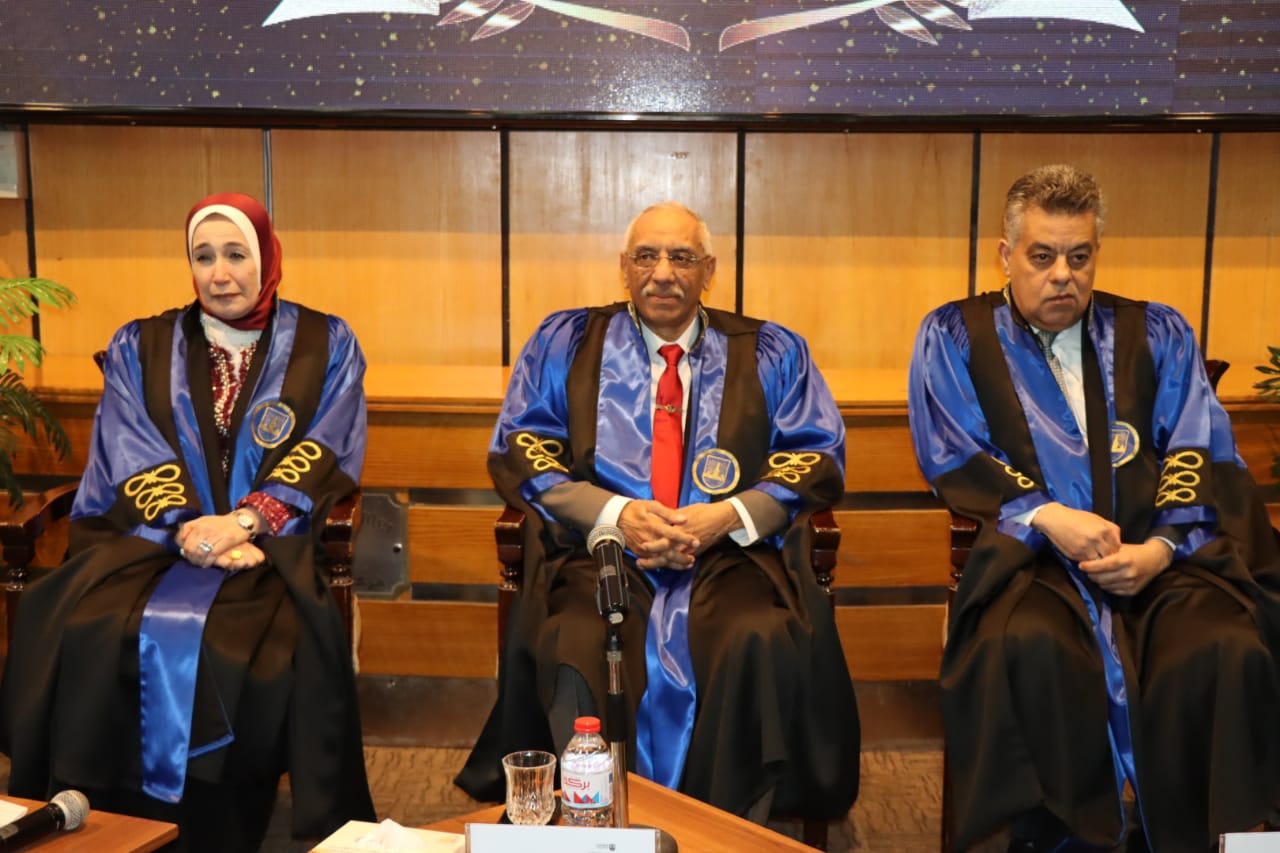
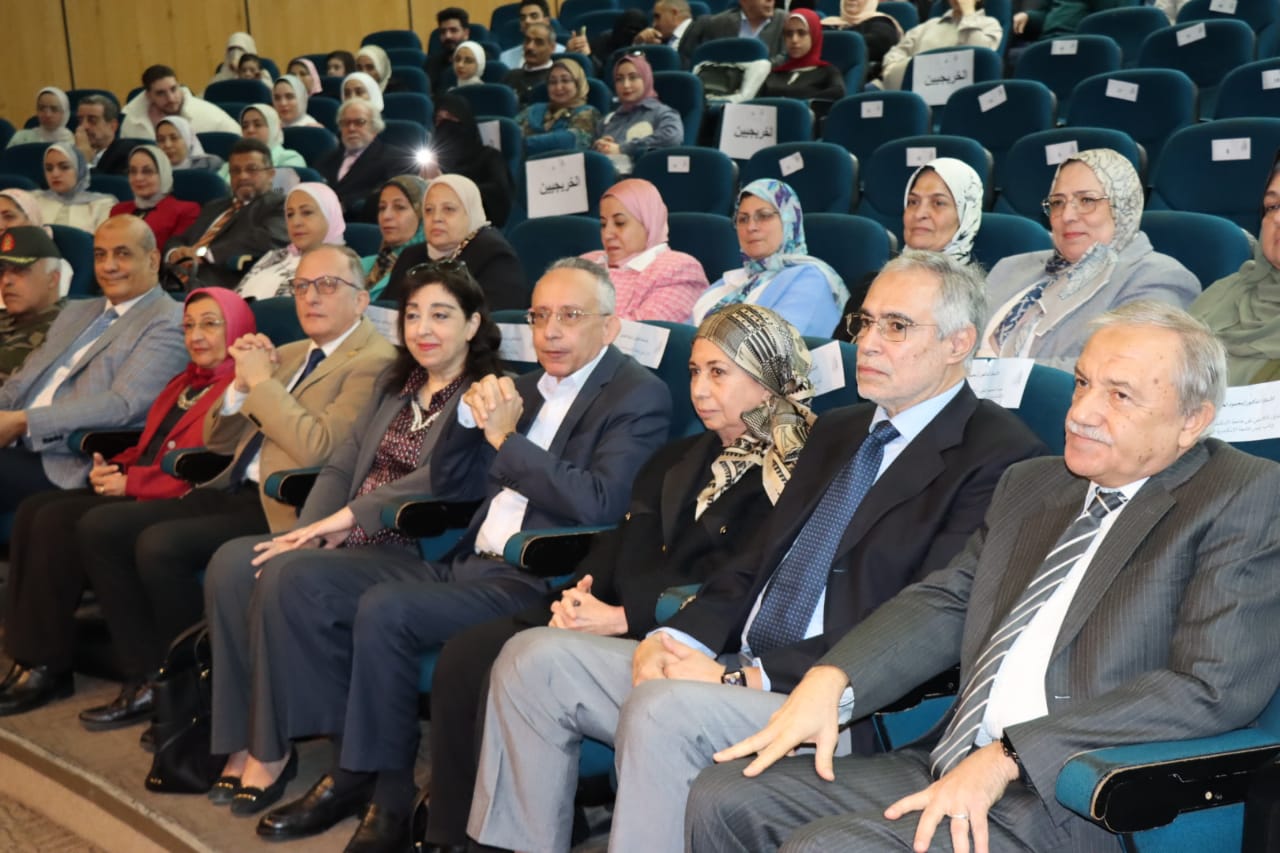
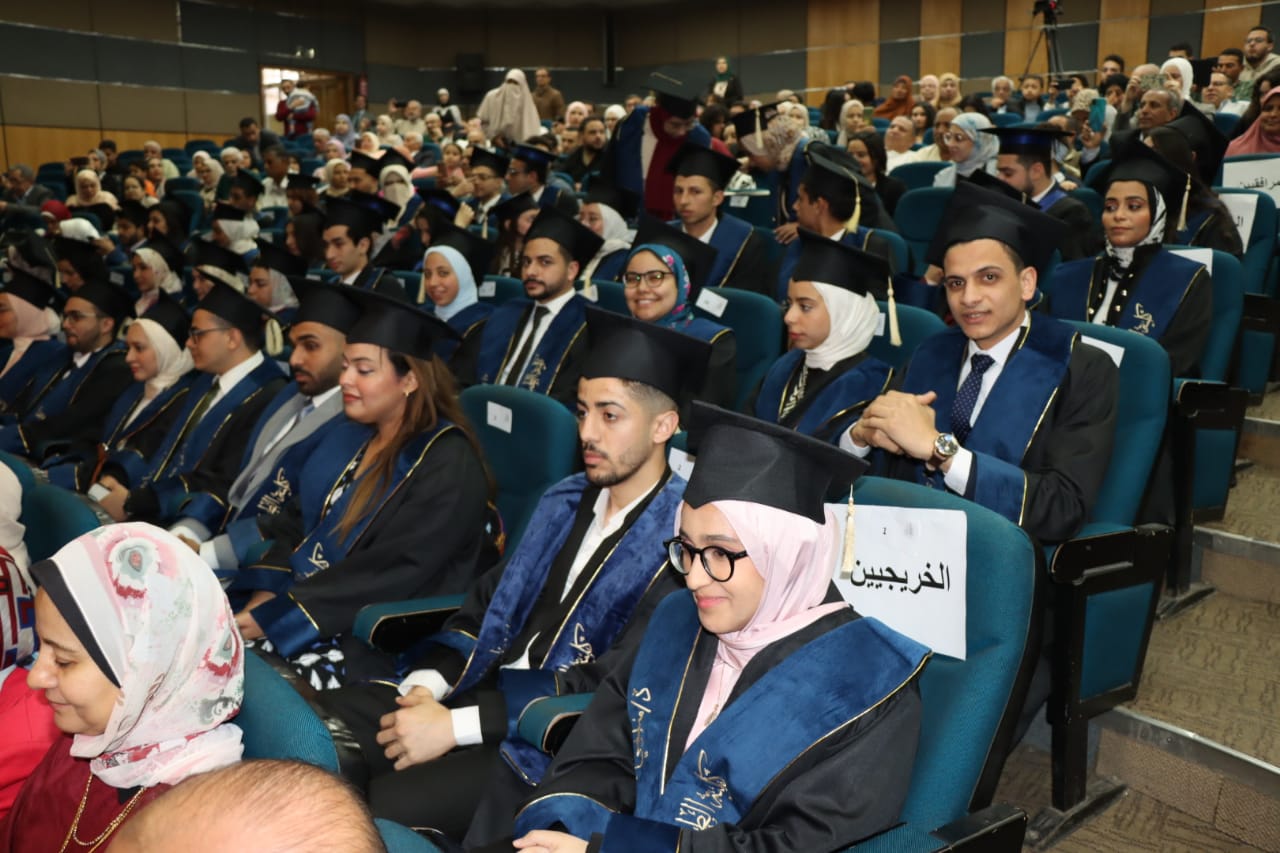
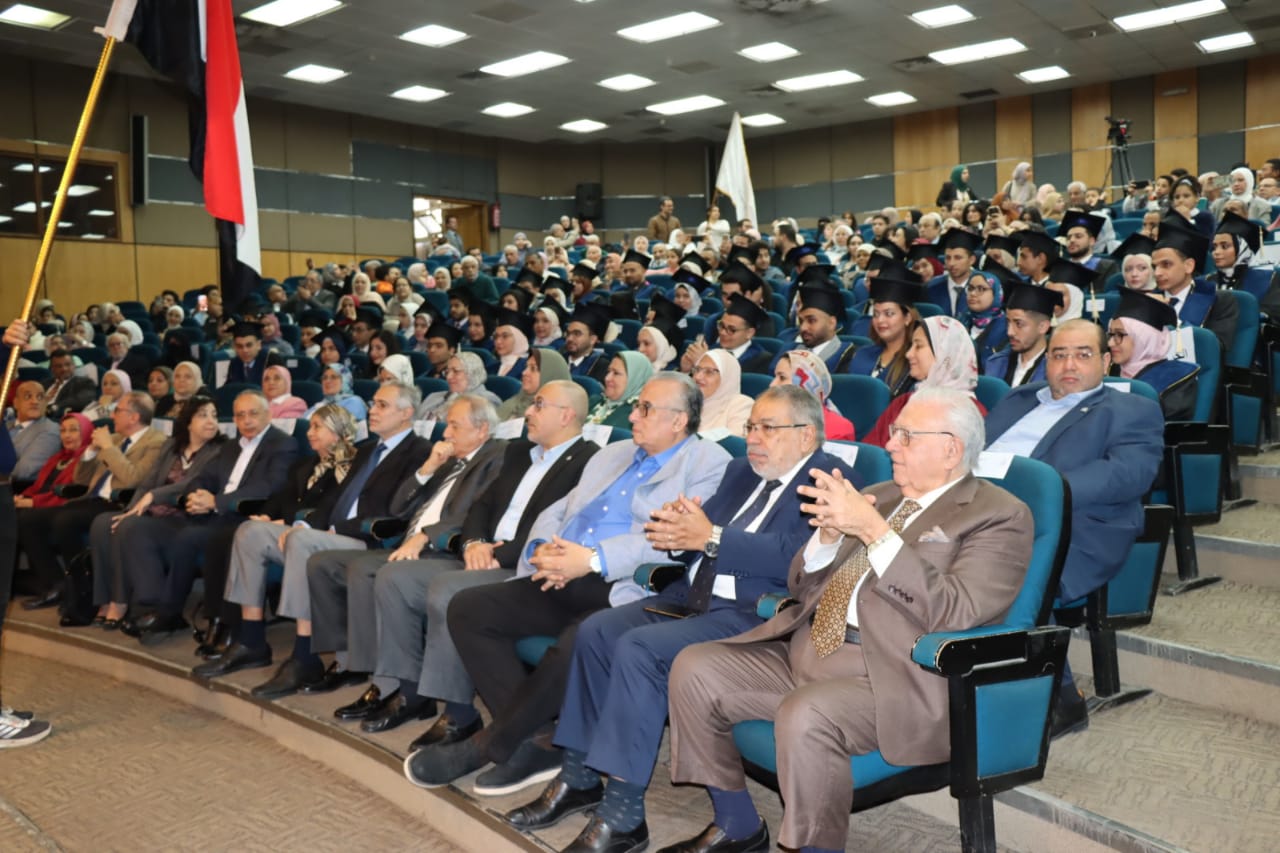
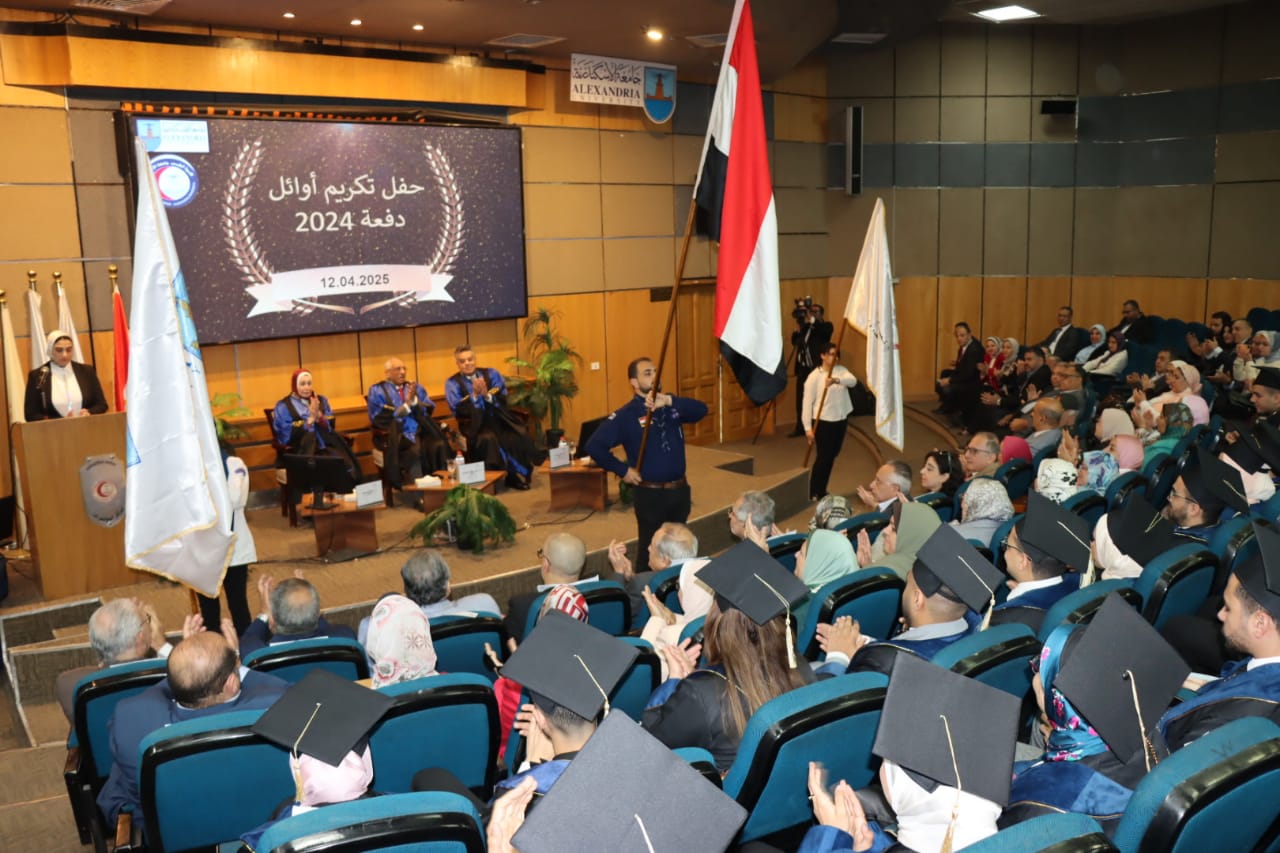
Faculty of Economic Studies and Political Science Continues Seminars on Artificial Intelligence
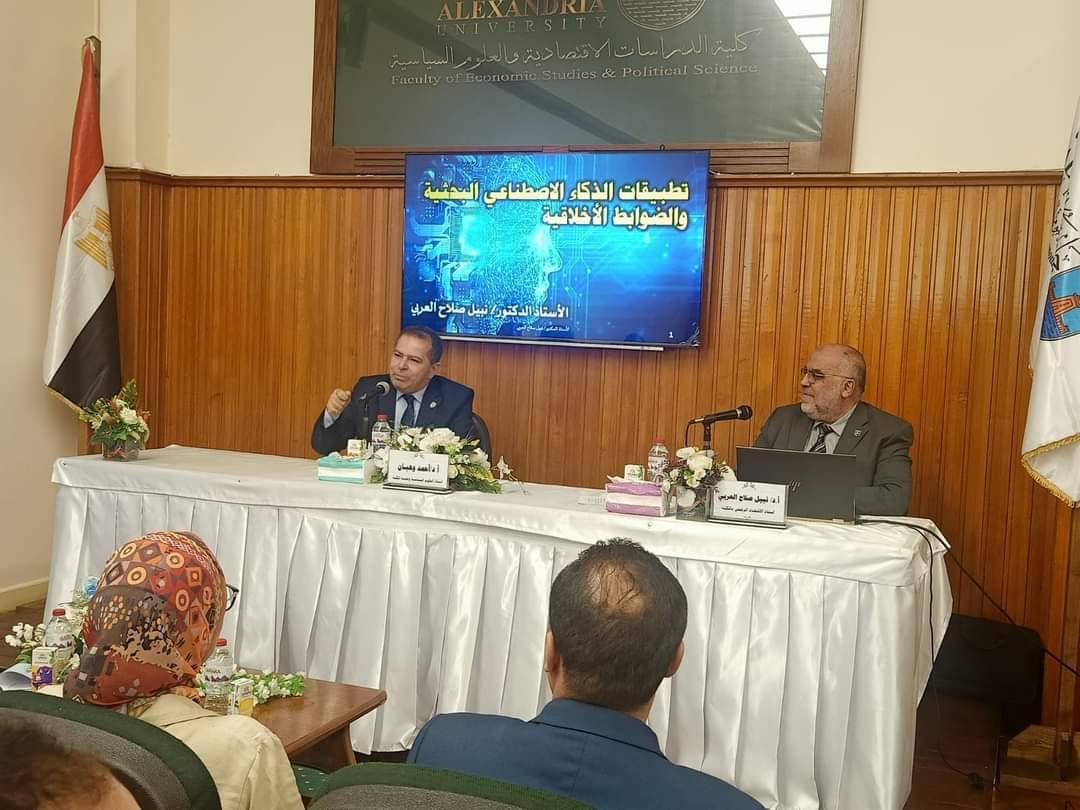
Under the auspices of Professor Dr. Abdelaziz Konsowa, President of Alexandria University, the Centre for Economic Research and Studies at the Faculty of Economic Studies and Political Sciences organized an educational symposium entitled “Research Applications of Artificial Intelligence and Ethical Controls,” in which Dr. Nabil Salah El-Arabi, Professor of Digital Economics at the Faculty, and former advisor to one of the United Nations Development Program projects, lectured.
Dr. Ahmed Wahban, Dean of the Faculty, indicated that the symposium was attended by a group of faculty members, supporting staff, researchers, specialists, and students from the Departments of Economics and Political Science. He pointed out in his speech the importance of adhering to ethical controls and academic standards in scientific research, stressing that the development of artificial intelligence electronic and digital tools in academic research is not a substitute for serious, thorough scientific research, and the researchers must strive to benefit from contemporary technologies, including the potential of artificial intelligence, without falling into the trap of plagiarism or claiming intellectual property that is not their own creation.
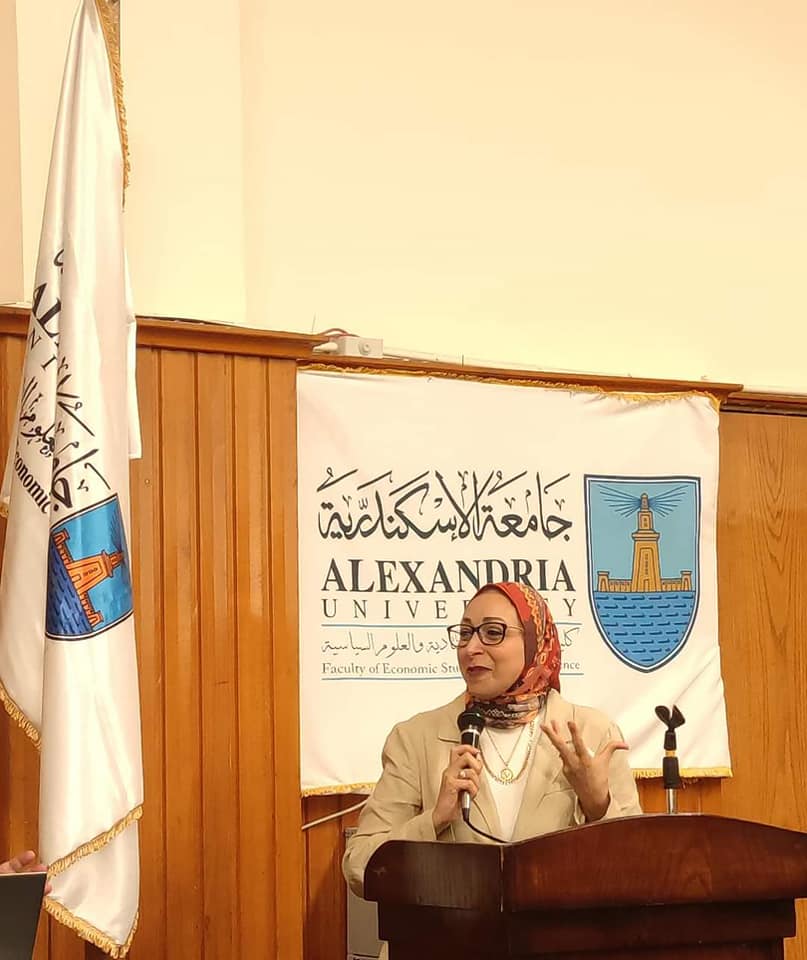
Dr. Abeer Shaaban Abdo, Executive Director of the Centre for Economic Research and Studies, pointed out the accelerating pace of artificial intelligence innovations that cast a shadow on academic research, which necessitates the need to discuss them and learn about the advantages and risks of using these technologies in the research and academic field.
Dr. Nabil El-Arabi reviewed artificial intelligence technologies and their expected impact on human lives and scientific research. He also reviewed the latest developments in this field, pointing to several topics, most notably:
- Introduction to the chatbot using artificial intelligence.
- How does the LLM work within artificial intelligence techniques?
- A comparison between the ChatGPT application and the Bard application in terms of specifications and performance standards.
- Effective use of artificial intelligence dialogue robots in research activities.
- Ethics of using artificial intelligence applications in academic research.
The symposium included numerous interventions from the audience, including faculty members, supporting staff members, and young researchers, during which they asked various questions, and ended with an emphasis on continuing the series of symposiums on the subject of artificial intelligence and its developments, based on its great importance in the field of contemporary scientific research.
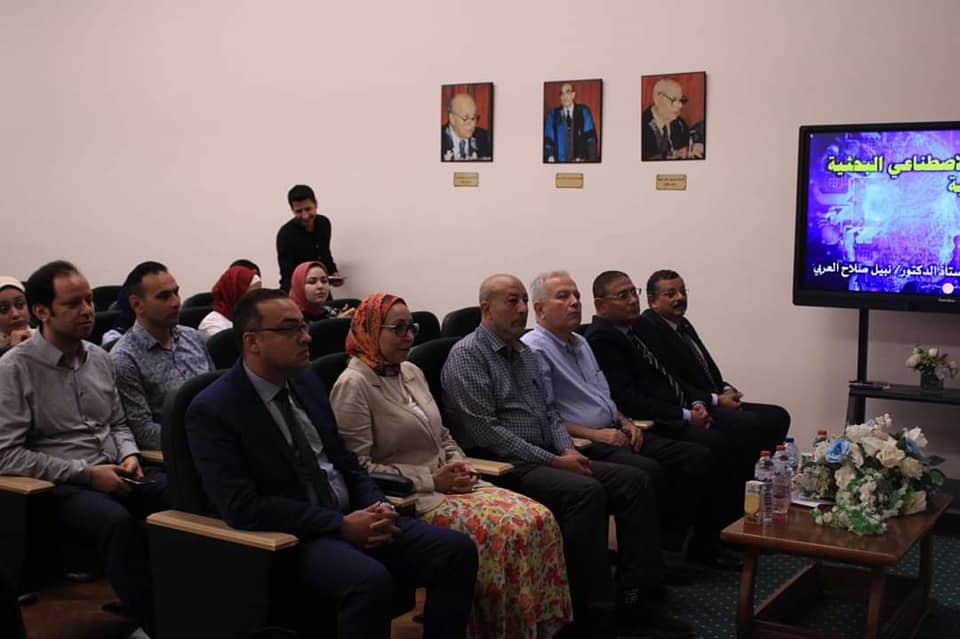
Faculty of Medicine Celebrates “Alex Med Stars” Initiative
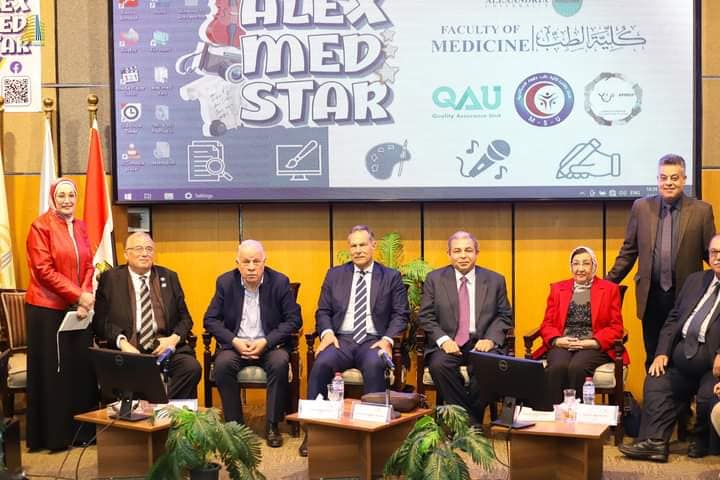
Under the auspices of Professor Dr. Abdelaziz Konsowa, President of Alexandria University, and the supervision of Dr. Ali Abdelmohsen, Dean of the Faculty of Medicine and Acting Vice President of the University for Education and Student Affairs, the Faculty of Medicine held the first celebration of the Alex Med Stars initiative for its Egyptian and International students in both the General Program and the International Program in cooperation with the British University of Manchester.
Dr. Iman Youssef, Vice Dean of the Faculty of Medicine for Education and Student Affairs, stated that the celebration aims to shed light on the faculty’s distinguished students in various scientific, research, sports, artistic, and technological fields, and to encourage them to continue in these activities. She added that a talent fair will be organized to display various student activities and products, such as posters, published research and various artistic works (drawings, models, handicrafts, etc.), and thanked everyone who contributed to the preparation of this celebration.
Dr. Tamer Abdallah, Vice Dean of the Faculty of Medicine for Community Service and Environmental Development, confirmed that the celebration included the presentation of a Role Model, during which a number of distinguished medical professors and good role models spoke about their honourable life journey and their wonderful efforts to serve as good role models for students.
Dr. Hala Maklad, Executive Director of International Students Department at the university, indicated that the Alex Med Stars initiative aims to shed light on talented students in various fields such as scientific research, culture, arts, drawing, singing, and sports, whether Egyptian or international students, as well as sponsoring these students in an institutional setting under the auspices of the Faculty of Medicine and Alexandria University.
Several medical professors participated in the celebration and its sessions, including Dr. Abdelmoneim Fawzy, Head of the Alexandria Doctors Syndicate, Dr. Mohamed Hisham, Dean of the Faculty of Medicine at the Arab Academy, and Dr. Ashraf Saad Galal, former Head of the Alexandria Doctors Syndicate and former Dean of Alexandria’s Faculty of Medicine.
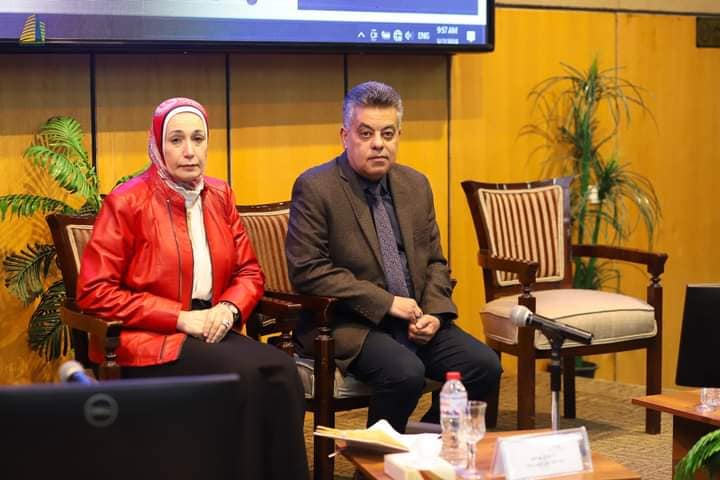
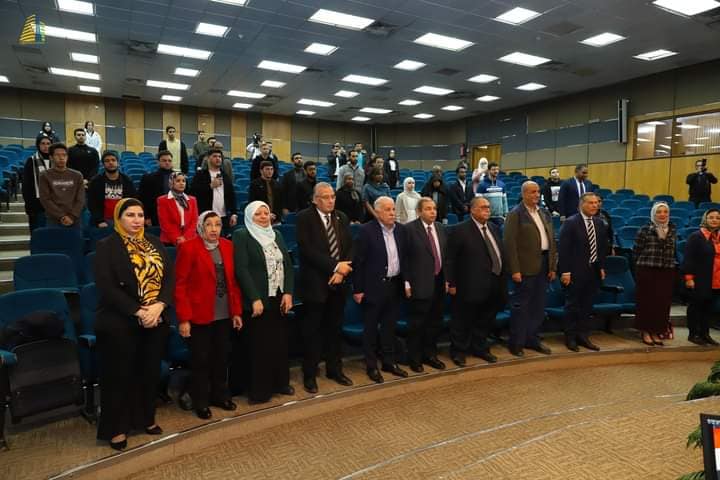
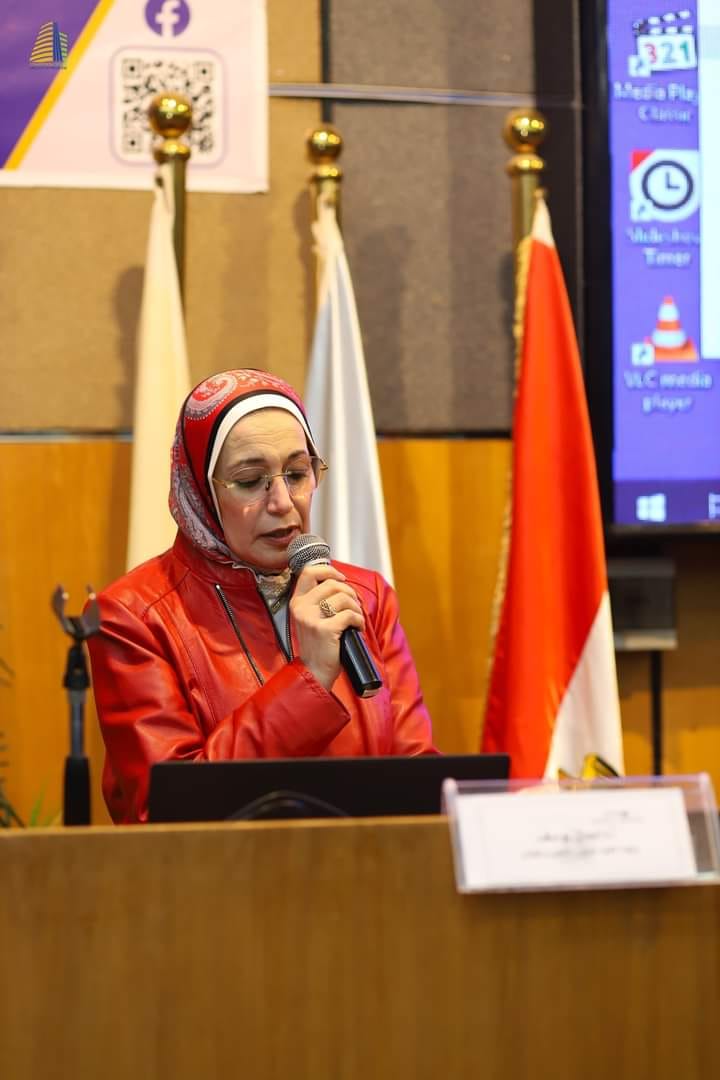
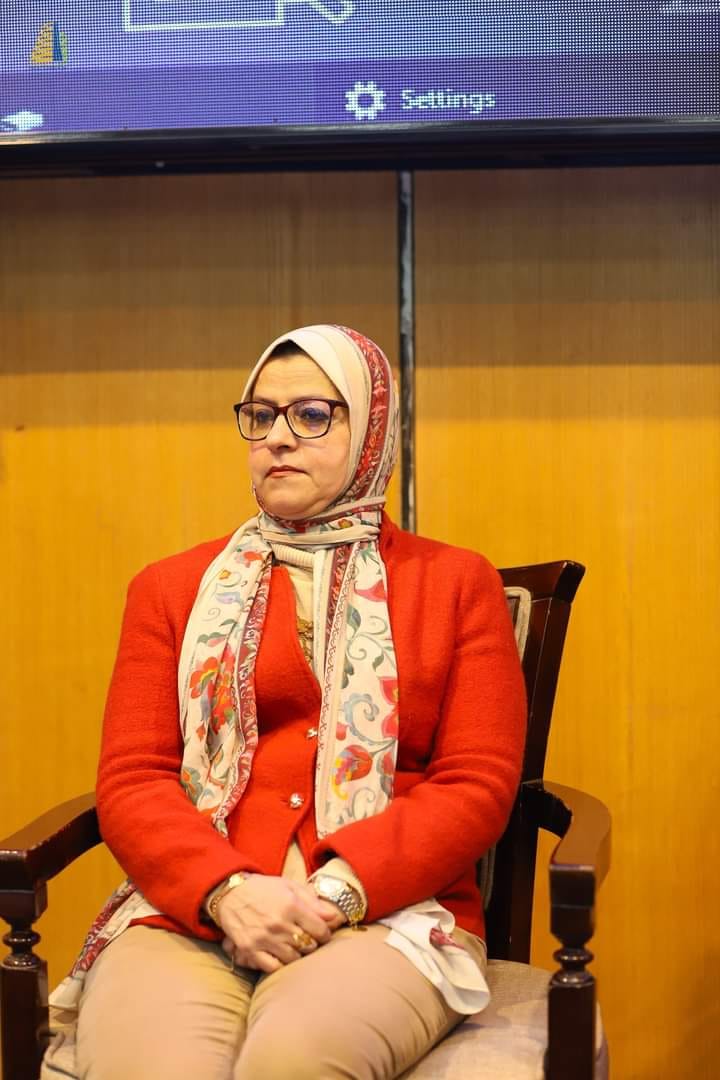
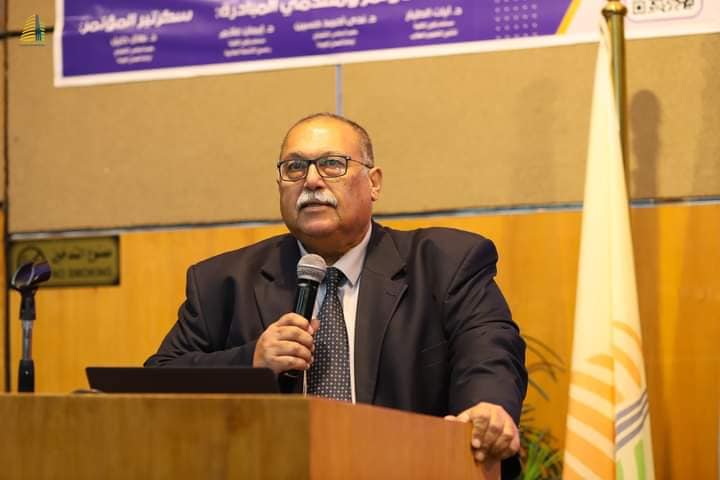
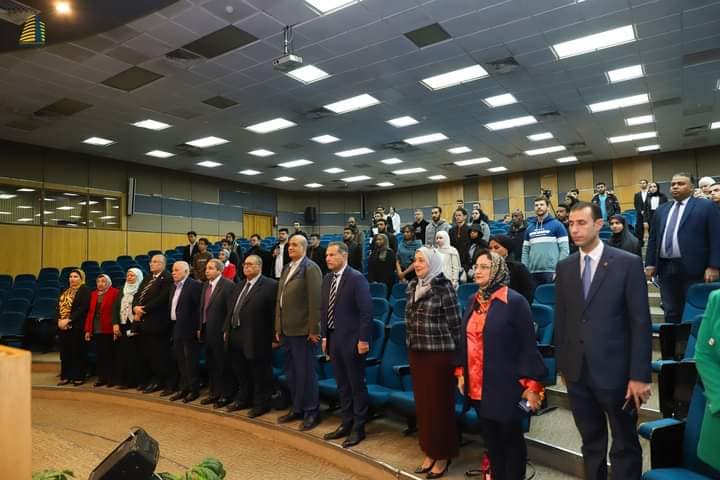
Faculty of Dentistry Receives Professors from University of Barcelona, Spain
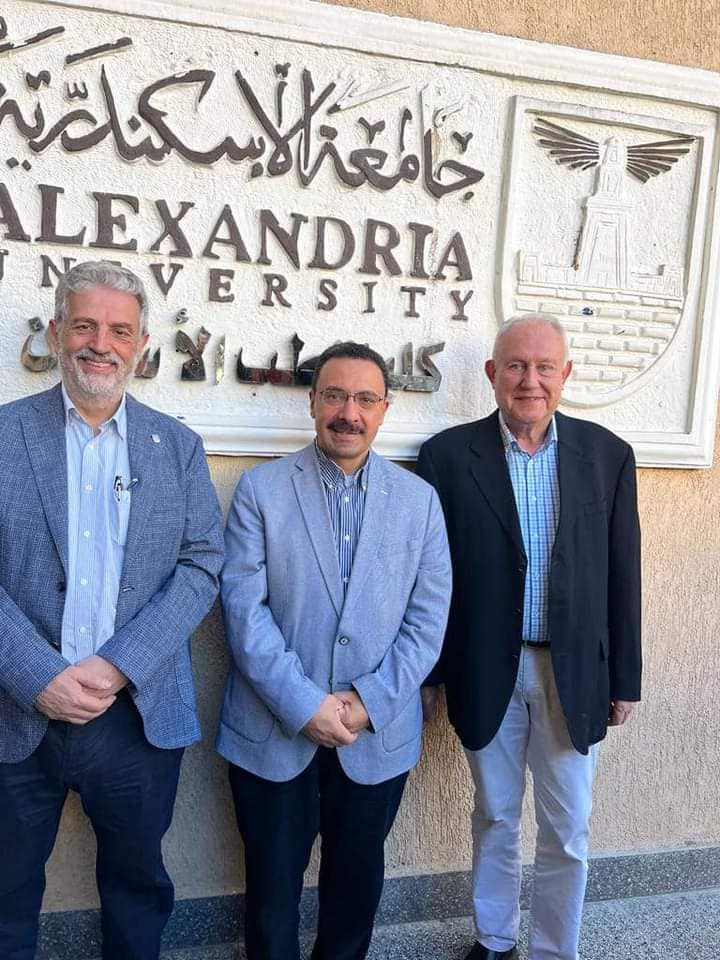
The Faculty of Dentistry at Alexandria University received a visit from Professor Antonio España and Professor Josep Arnabat, professors at the Faculty of Dentistry, University of Barcelona, Spain, to participate in delivering Master’s lectures in Laser Applications, which is a dual degree between Alexandria University and the University of Barcelona.
Dr. Ahmed Adel Abdelhakim, Dean of the Faculty, indicated that the visit included lectures and practical training on different samples and pathological cases for laser applications. He pointed out that this program is part of several current joint programs being prepared with the University of Manchester, Essex, the Royal Society of Surgeons of Edinburgh and others in various dentistry specialties.
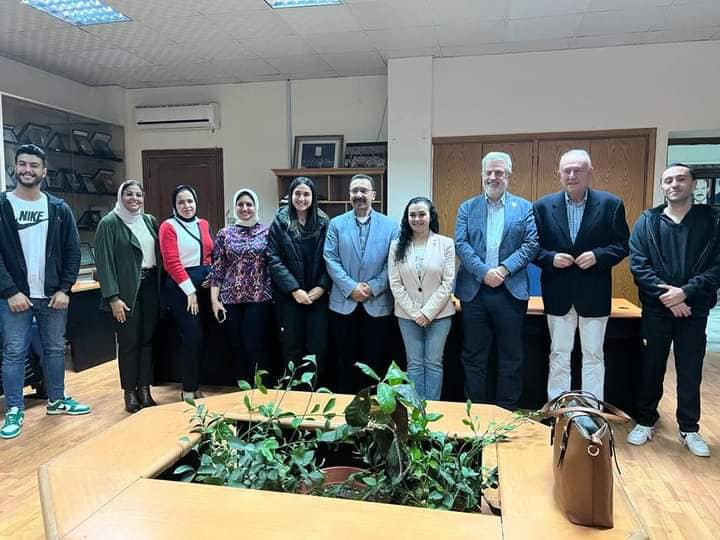
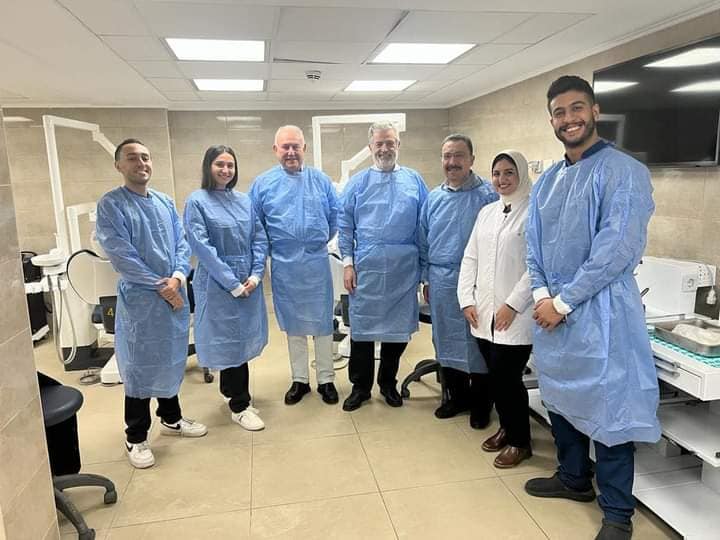
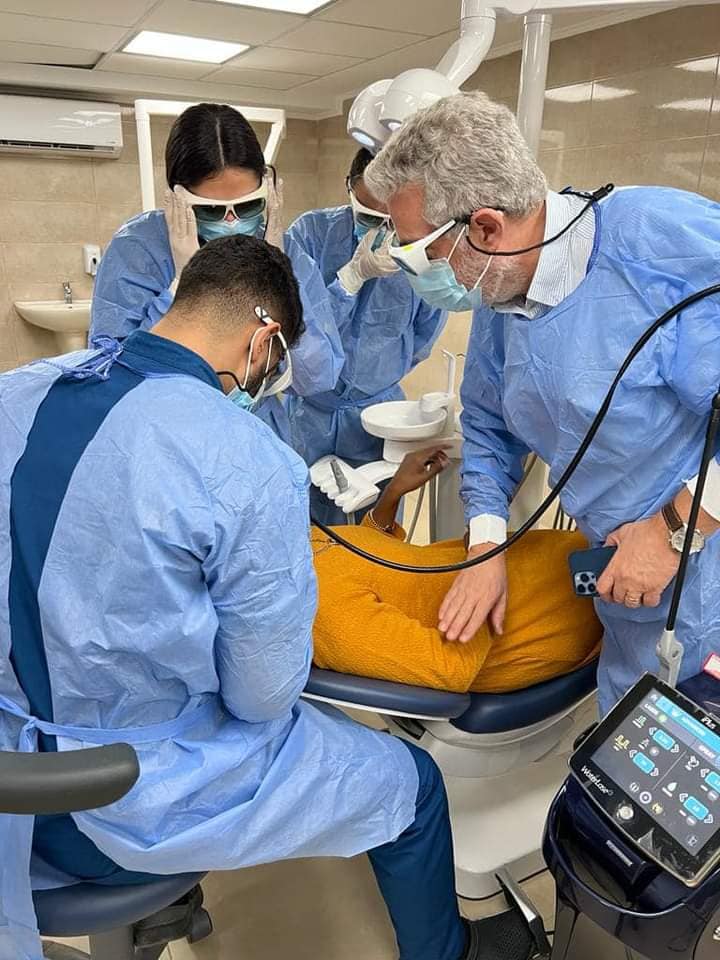
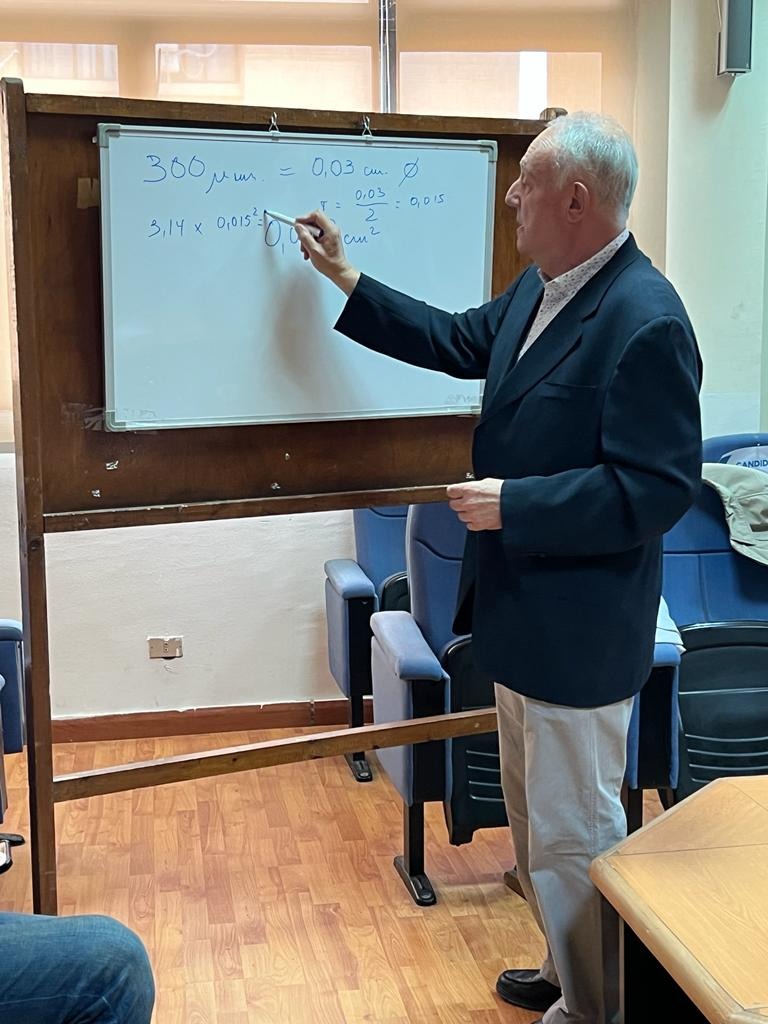
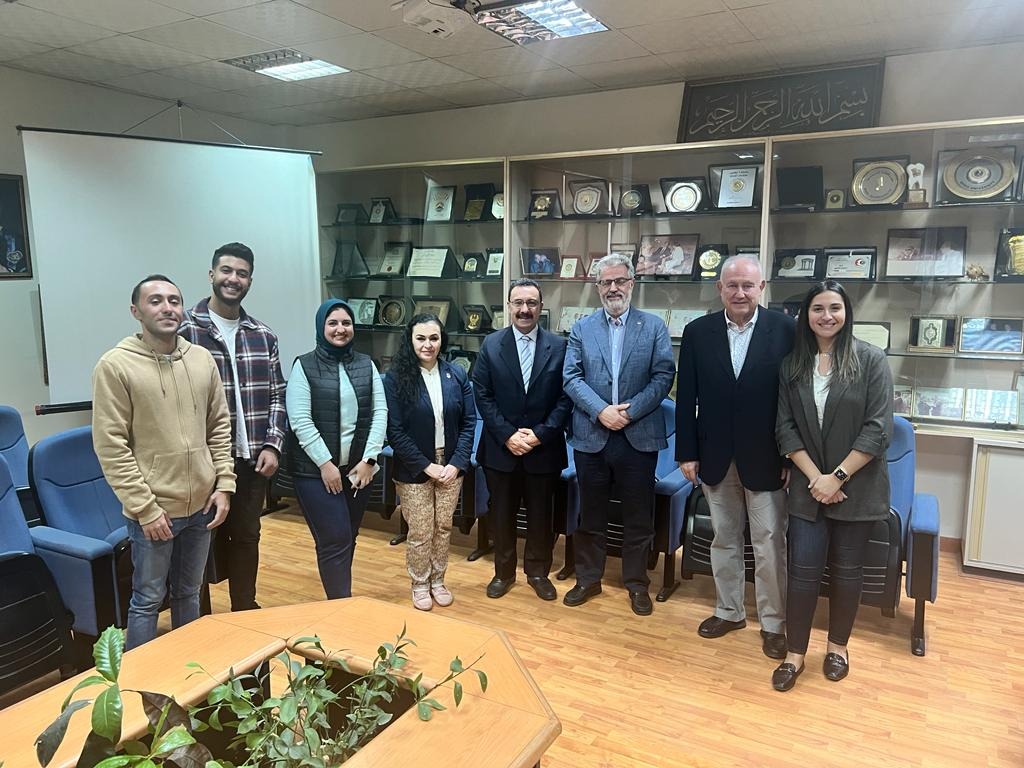
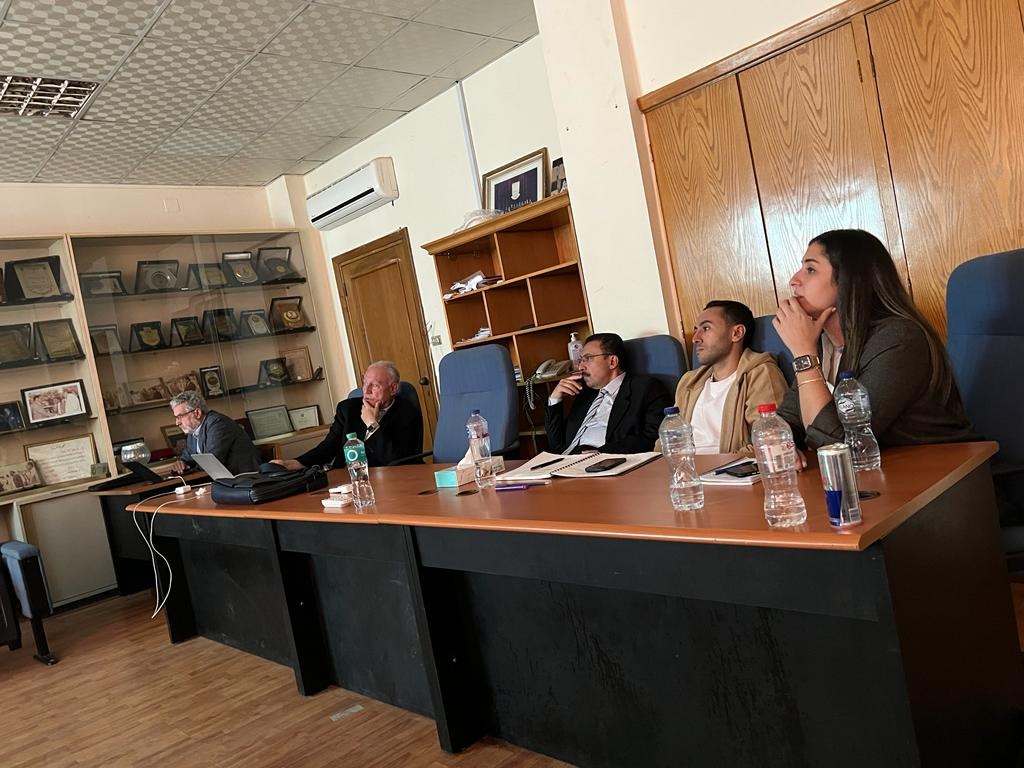
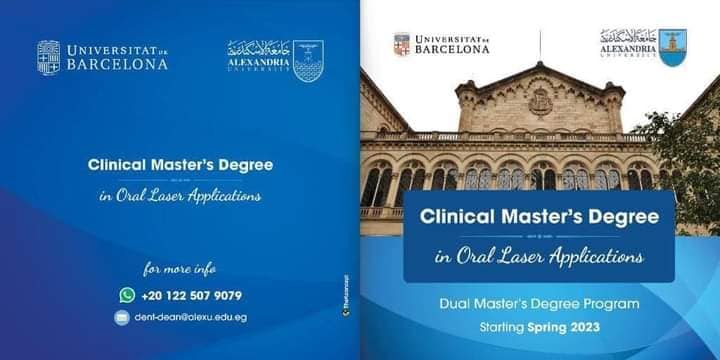
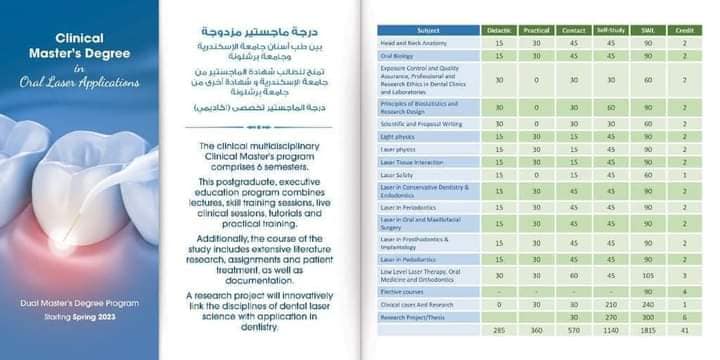
Faculty of Education Hosts Novelist Essam Youssef in "Geniuses and Community Awareness" Seminar
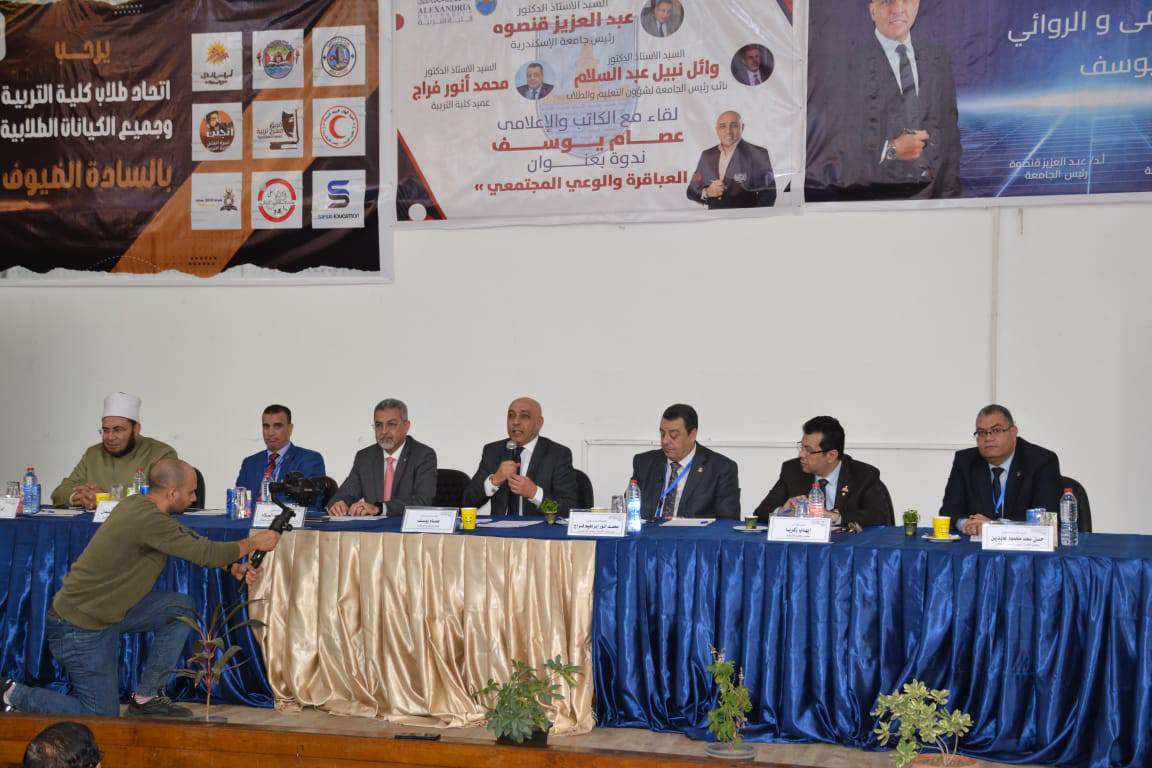
Professor Dr. Abdelaziz Konsowa, President of Alexandria University, received the writer and novelist Essam Youssef, presenter of the "Geniuses" TV game show, where he gave him the university's shield in appreciation of the cultural and educational role he plays through his purposeful "Geniuses" programme. He stressed that the university would continue this success and will spread the idea of these competitions among students of different faculties to contribute to raising their intellectual and cultural level.
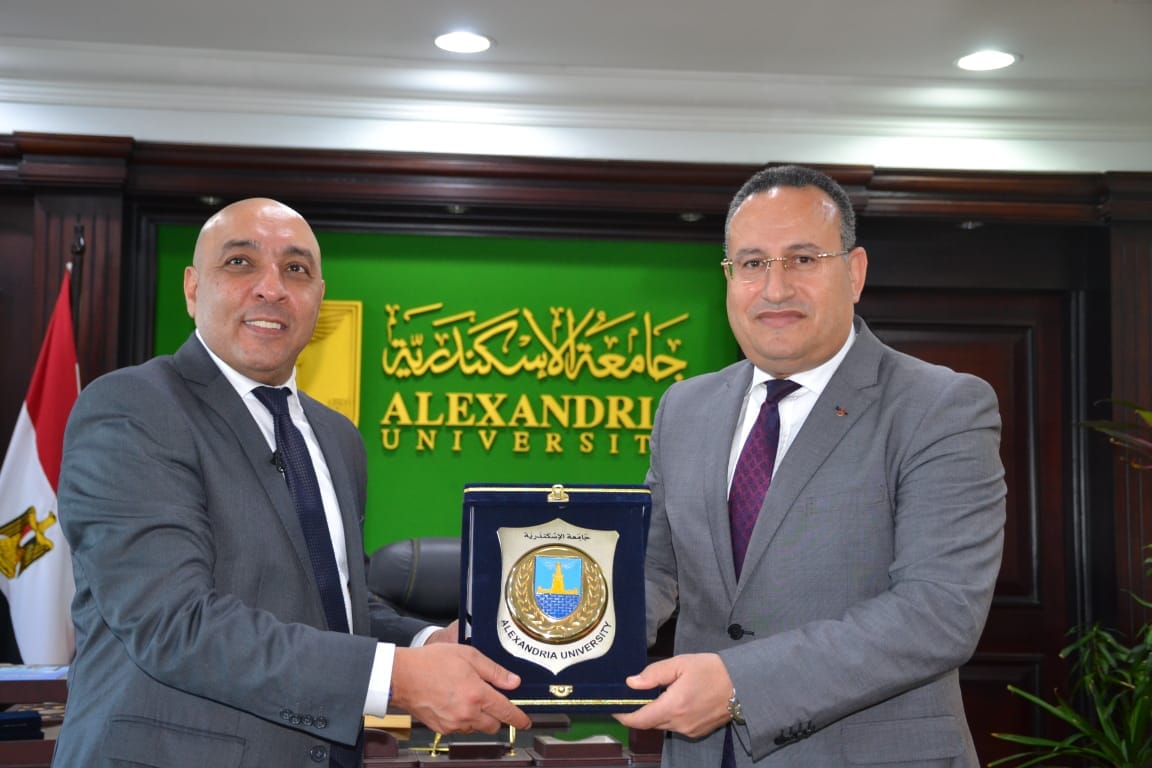
Mr. Youssef had met earlier with Alexandria University students in an educational seminar organized by the Faculty of Education under the title "Geniuses and Community Awareness". Among the participants in the seminar were Dr. Wael Nabil, Vice President of Alexandria University for Education and Student Affairs, Dr. Mohamed Anwar Farrag, Dean of the Faculty of Education, Sheikh Ibrahim El-Gamal, Secretary of the Family House in Alexandria, Dr. Hassan Abdeen, Vice Dean of the Faculty of Education for Education and Student Affairs, Dr. Salem Abdelrazek, Vice Dean of the Faculty of Education for Community Service Affairs, Mr. Ehab Zakaria, member of the Parliament, as well as several deans and vice deans of faculties, in addition to a group of professors, thinkers, and intellectuals in Alexandria.
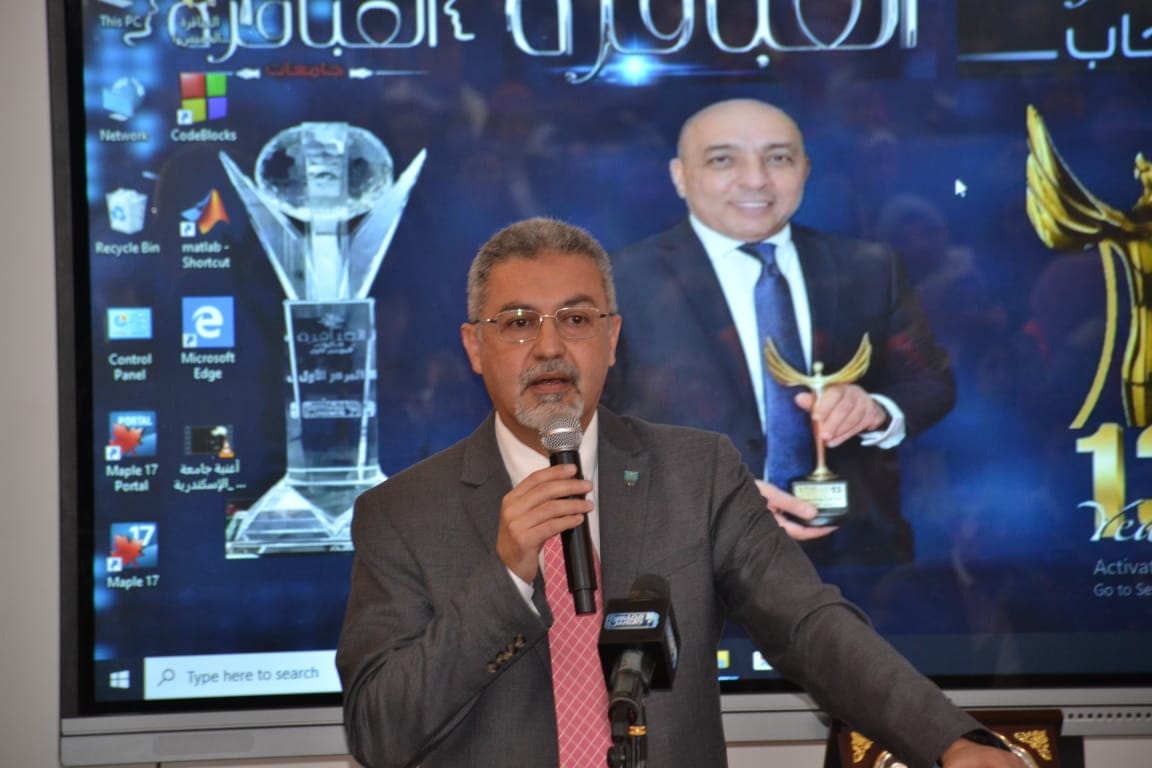
In his speech, Dr. Wael Nabil expressed his pleasure with the participation of this large number of students who represent the future of the new Egypt, stressing the importance of benefiting from the experience of the “Geniuses” TV programme and trying to employ it educationally to push students to learn, adding that the role of the university is no longer limited to science, but rather includes organizing such meetings, which contribute to increasing students' cultural awareness and knowledge. He also indicated that Alexandria University's participation in the “Geniuses” programme represents a qualitative and creative breakthrough that can be used as a competitive educational strategy.
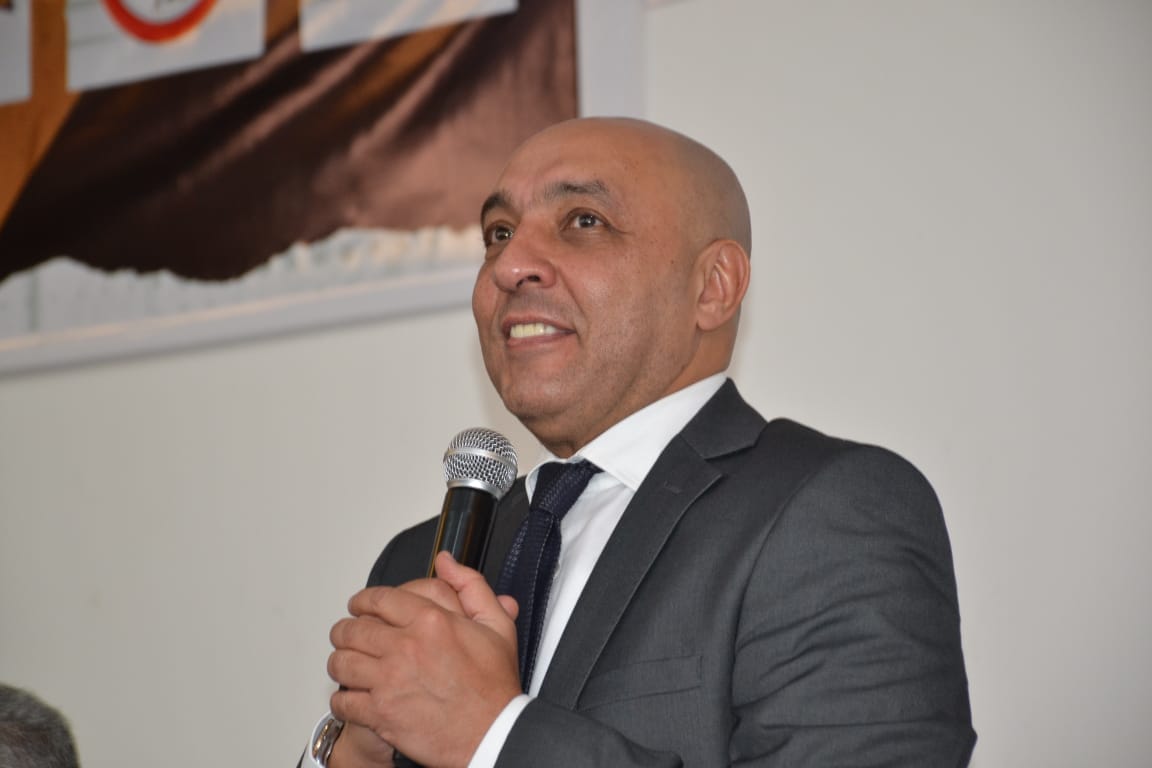
Writer and TV host Essam Youssef explained that he is happy to be in Alexandria University, a fortress of knowledge, assuring the students that one of the most important reasons for success is to have a dream they seek to achieve with perseverance and diligence. He added that geniuses, talented and creative people represent the hope of the nation with their talents and capabilities. He also explained that the idea of the "Geniuses" programme represents a qualitative and creative breakthrough that can be made use of by its implementation on a large scale within schools and universities, to bring about a noticeable change in the psychological and academic aspects of students as future investment projects.

In his speech, Dr. Mohamed Anwar Farrag, Dean of the Faculty of Education, emphasized that the “Geniuses” TV programme is a pioneering and unique Egyptian experience based on honest competition among students in a creative scientific atmosphere, that instils noble educational values in the hearts of students, that may exceed what educational systems have provided over the decades. He indicated that the “Geniuses” programme is the most powerful way that makes the students, whether in Egypt or in the Arab world, search for information by themselves, whether in science, arts, literature, technology, or history. It establishes the concept of self-education and spontaneous activity, and this principle has become necessary in modern education systems.
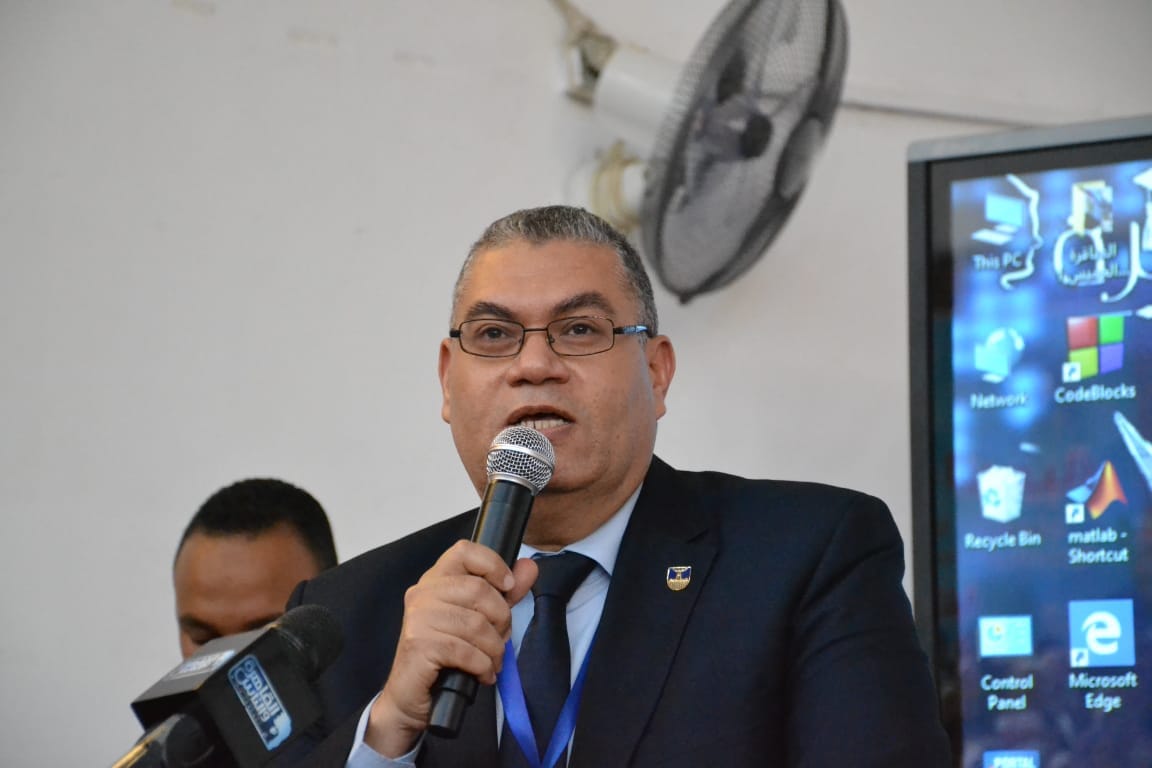
Dr. Hassan Abdeen, Vice Dean of the Faculty of Education for Education and Student Affairs, stressed the importance of discovering geniuses through nomination by their peers, holding various tests and having certain standards, indicating that this does not end when geniuses are discovered, but rather they must be cared for and nurtured by urging them to persevere and endure difficulties, and training them to solve problems that they encounter.
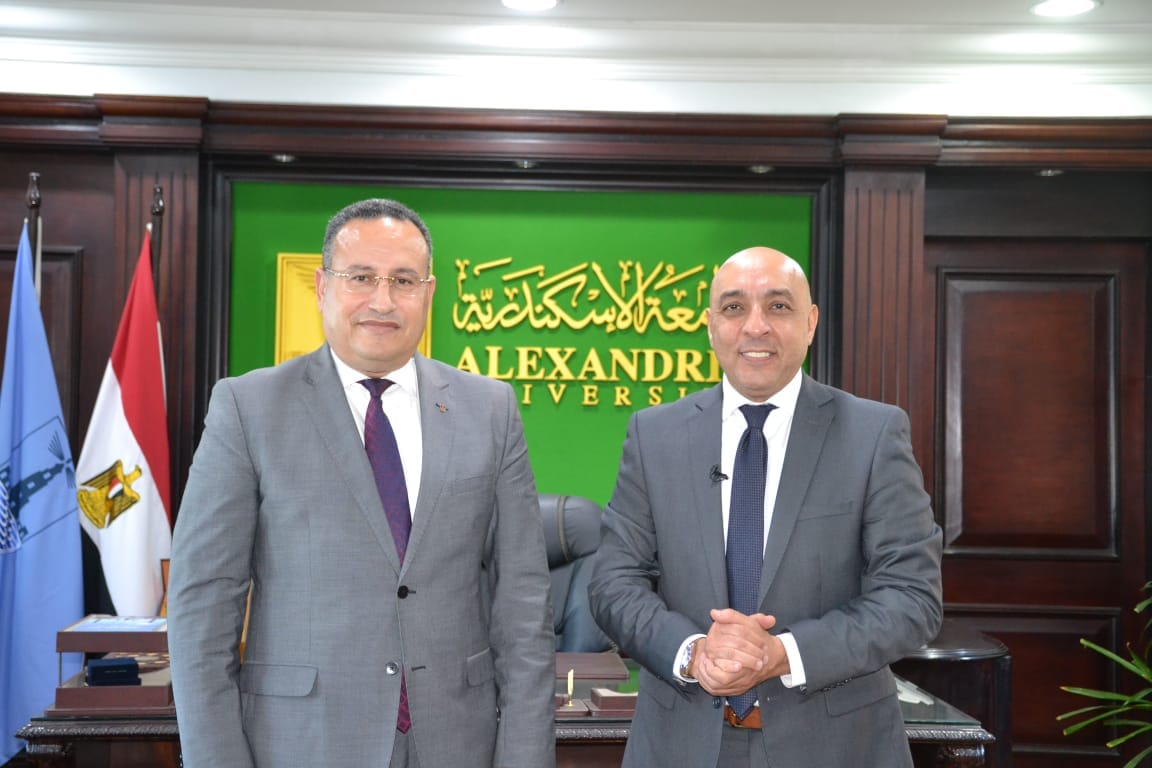
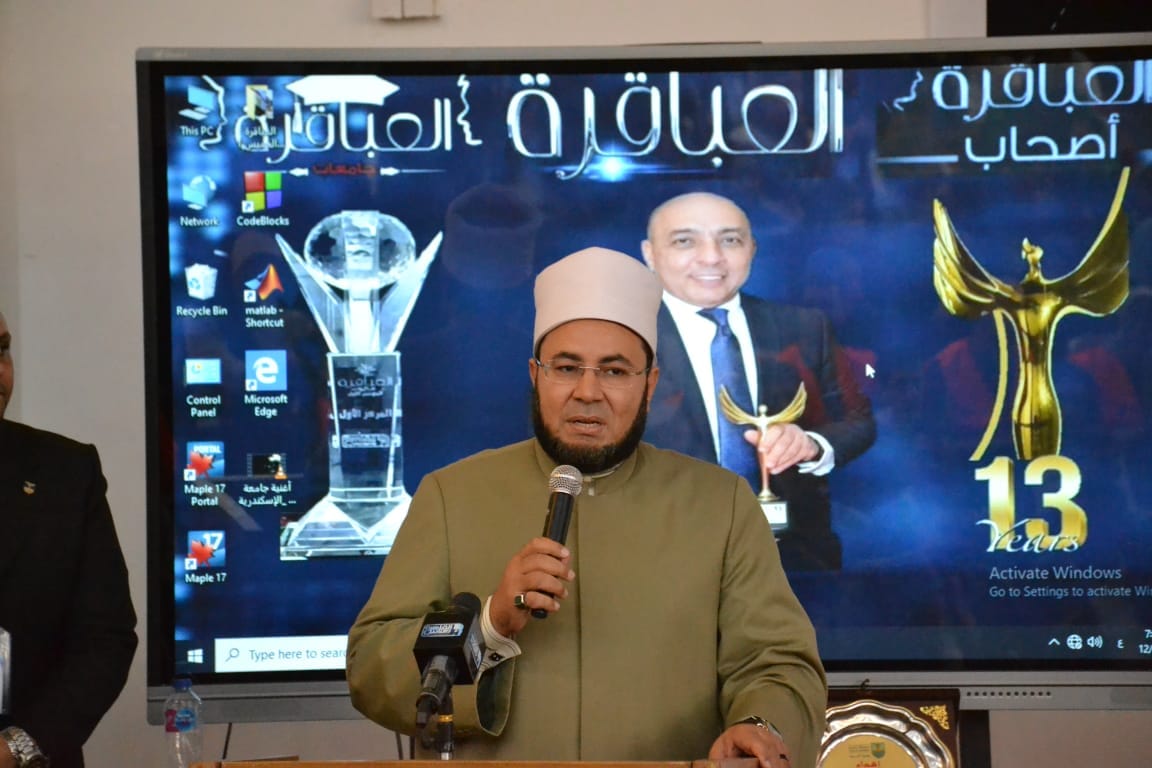
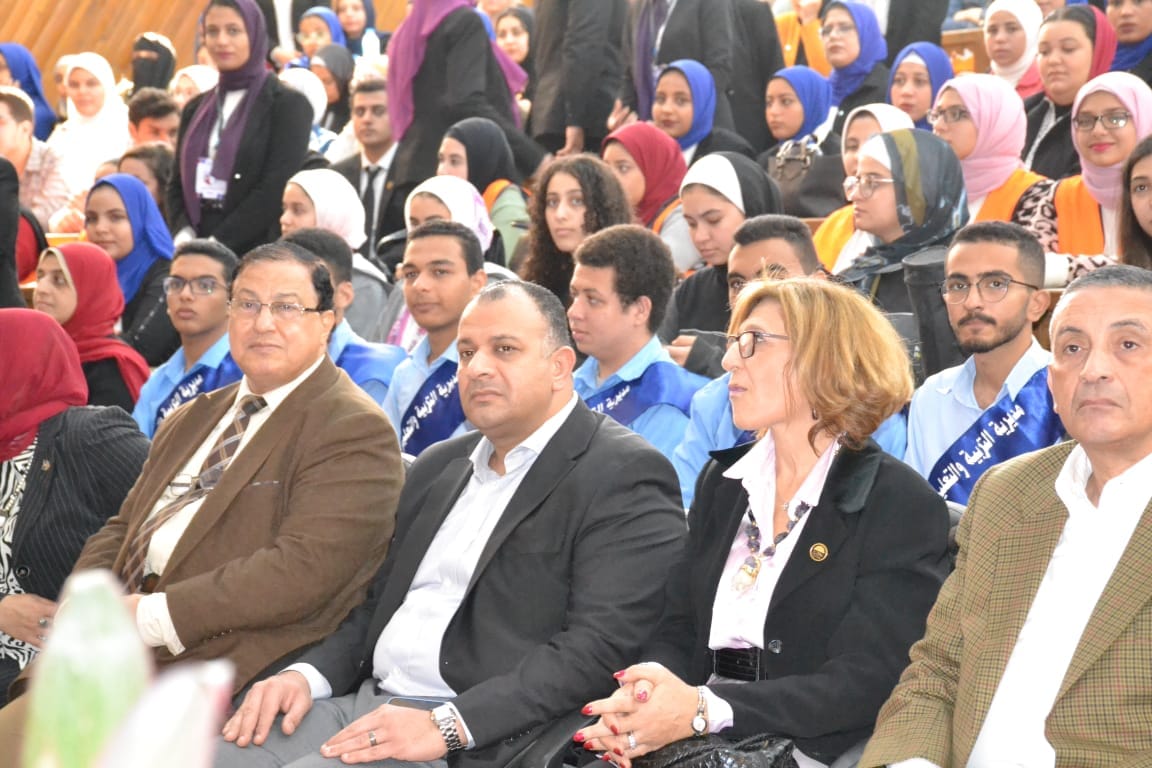
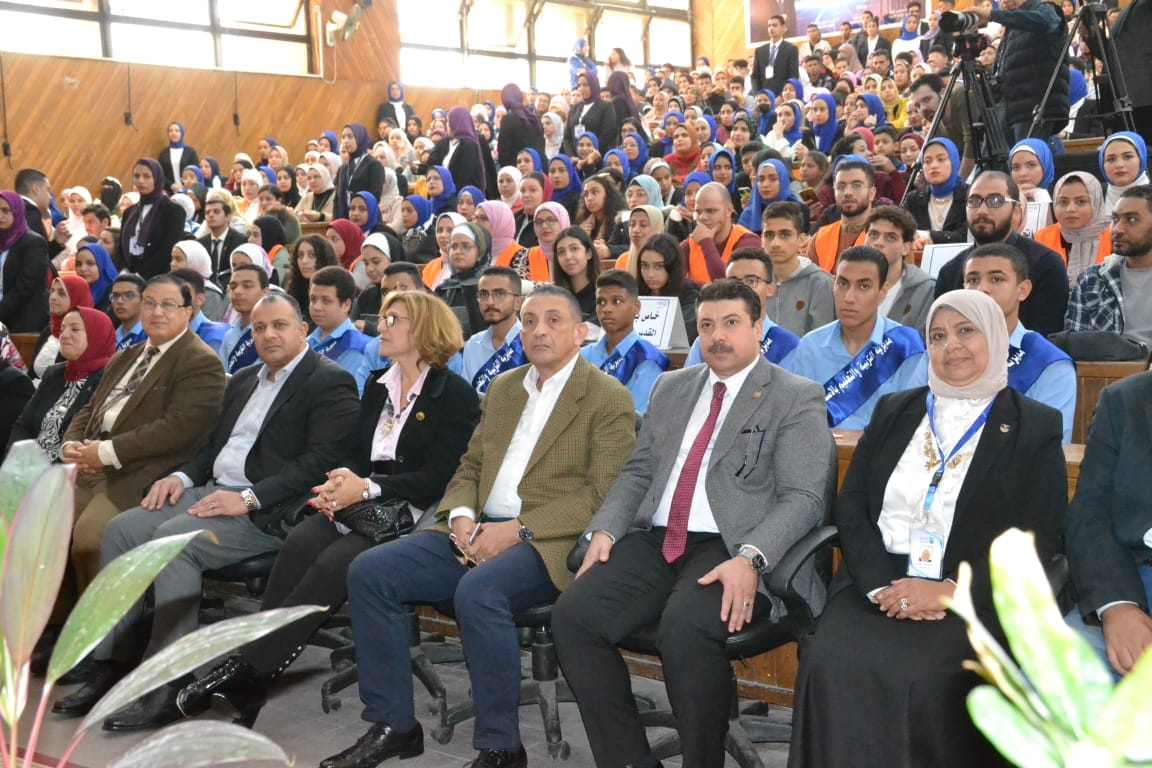
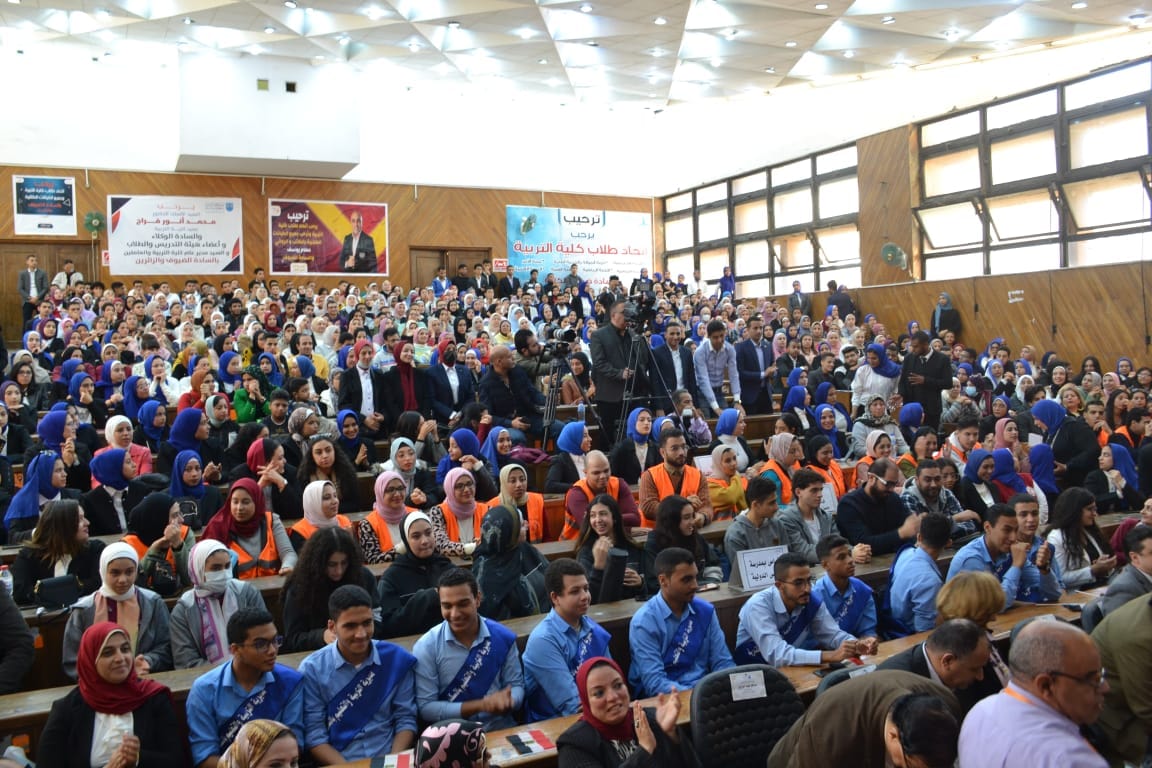
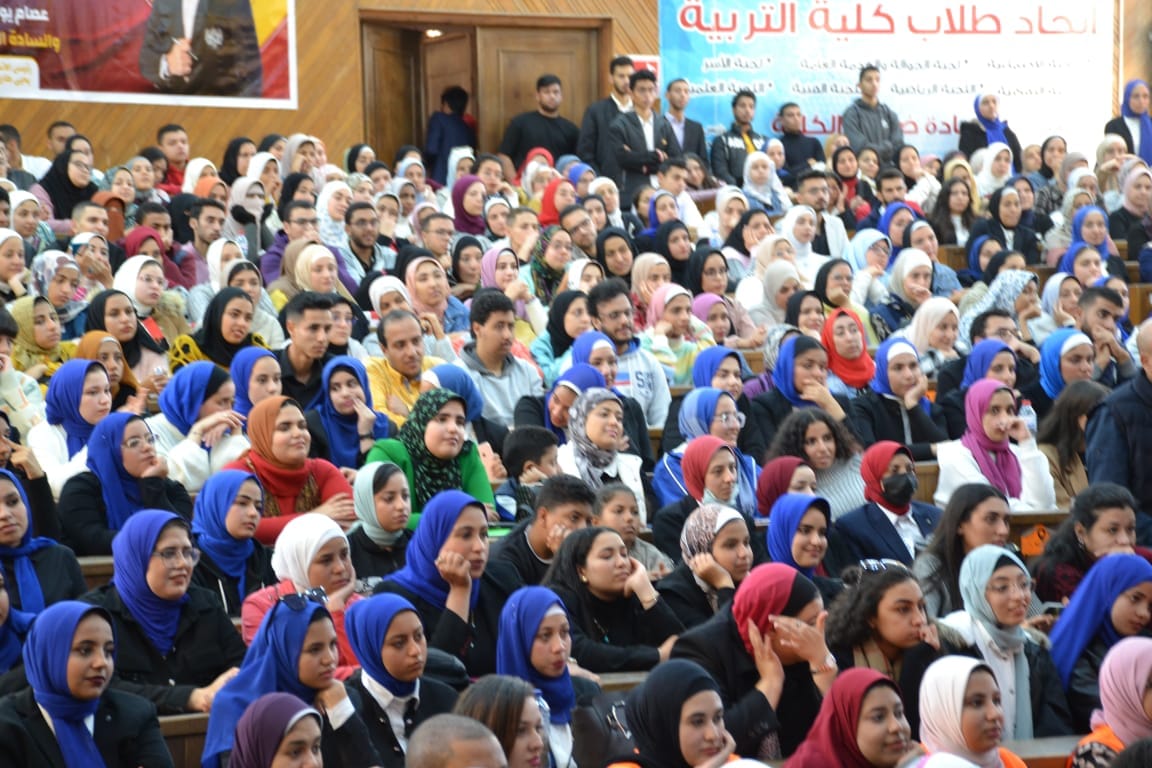
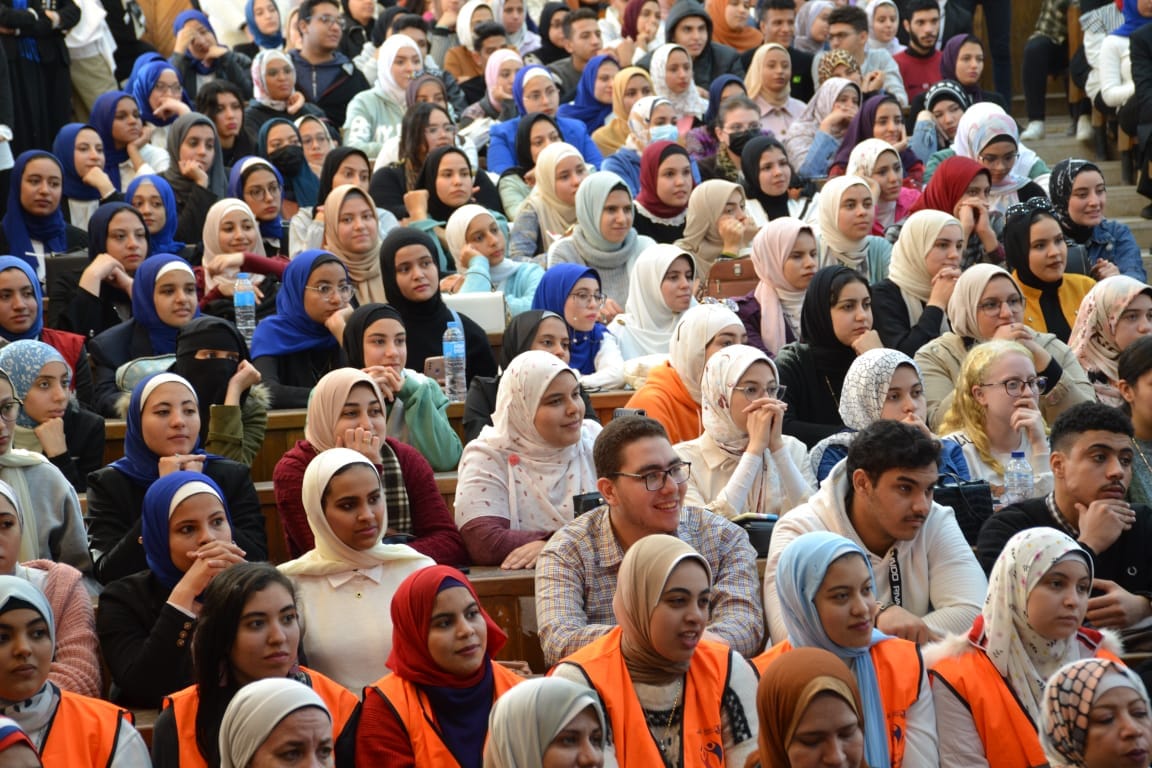
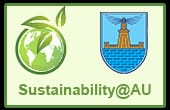
 English
English